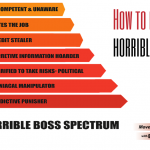Leadership: Steve Jobs vs. Oprah Winfrey
When the movie Steve Jobs comes out later this year I will be one of the first to buy a ticket to see it. Like most of the world, I am fascinated by Jobs’ meteoric rise and the creative genius he was at Apple (not to mention my affinity for anything written by Aaron Sorkin). But when I think about Jobs’ reputation as a leader, I bristle. There is no shortage of stories about his temper tantrums, belittling of engineers and the special abuses he launched upon his creative team, including public firings.
But what about the enormous pressure?
Can anyone other than the leader really understand the pressure to create something that has never been done before? What agony it must have been for Jobs to continually see a vision in his mind, then try and make it become a reality in spite of impossible odds and endless obstacles. It’s tempting to forgive the abuse because we sense the epic pressure the leader must feel in these cases. On some level, our culture believes that greatness has a price—and perhaps that price includes some yelling, threats and verbal abuse. We want to hate the college football coach who screams profanities or physically threatens his team, but we are conflicted because we value success so much.
Can there be greatness without the crazy?
We know that abusive behavior is not a necessity for greatness, because we have many examples at hand. Oprah Winfrey comes to mind. While I have never worked for Winfrey (or Jobs, for that matter) she has a reputation for being a perfectionist, having high standards, working all the time and being frugal—but no reputation so far for being abusive to her team. On the contrary, her reputation is for being extremely generous to her people. Like Jobs, Winfrey came from a meager upbringing and created a multi-billion-dollar empire and an improved reality that might not have existed had she not been born. If you are not an Oprah fan, and need a little inspiration to be a calm-but-awesome leader, then consider other cultural disruptors who have succeeded (seemingly) without abusing their team, such as Warren Buffet, Ariana Huffington, Abraham Lincoln, or Angela Merkel.
Perhaps behaving like a temperamental maniac at work feels impossible to avoid in the moment and may seem perfectly justified—but like any other kind of bullying or abuse, it is not effective in changing behaviors and often works against the goal you had in mind in the first place.
![]()
Name three leaders you truly admire and ask yourself why you admire each of them.




